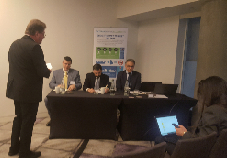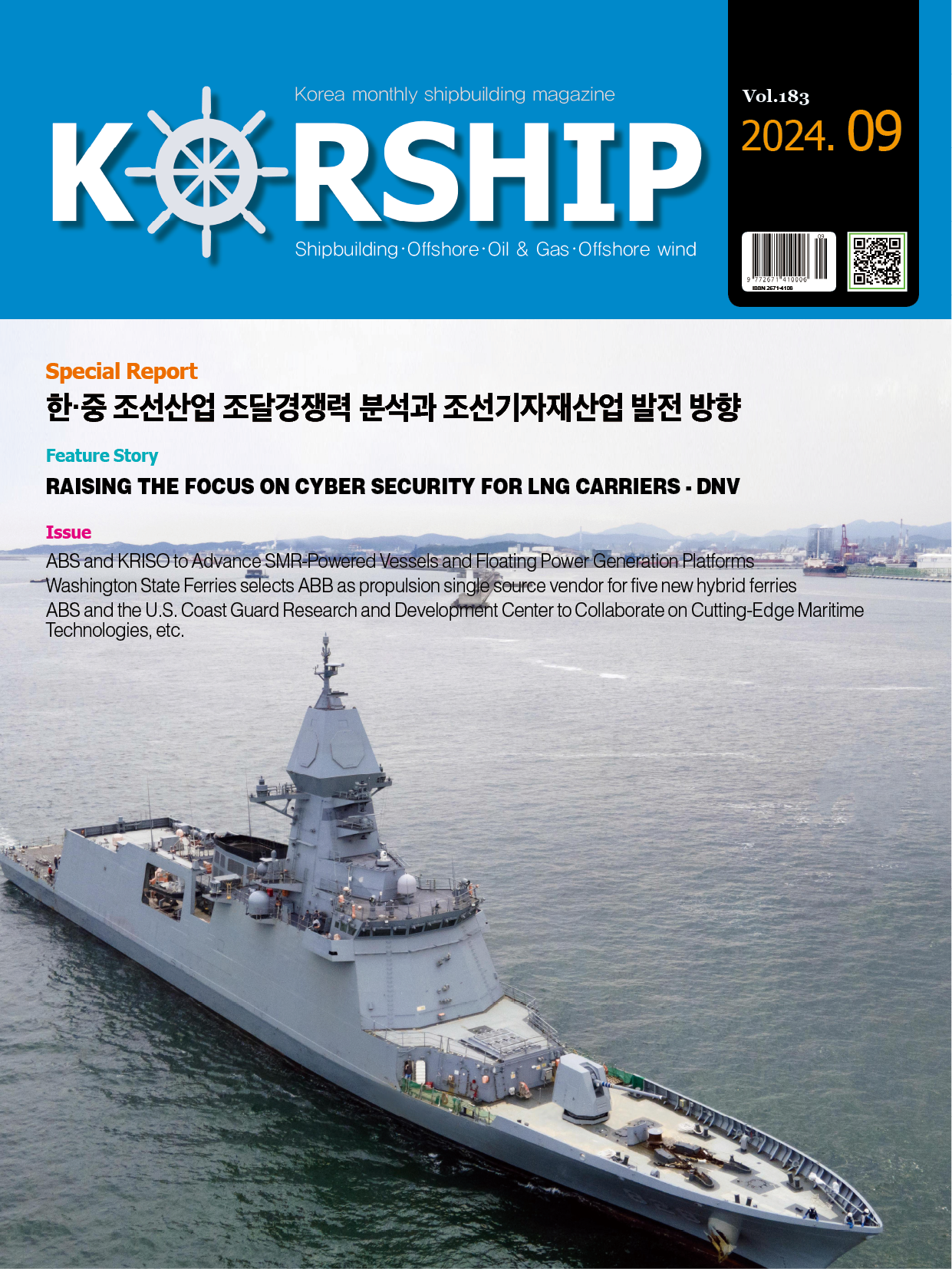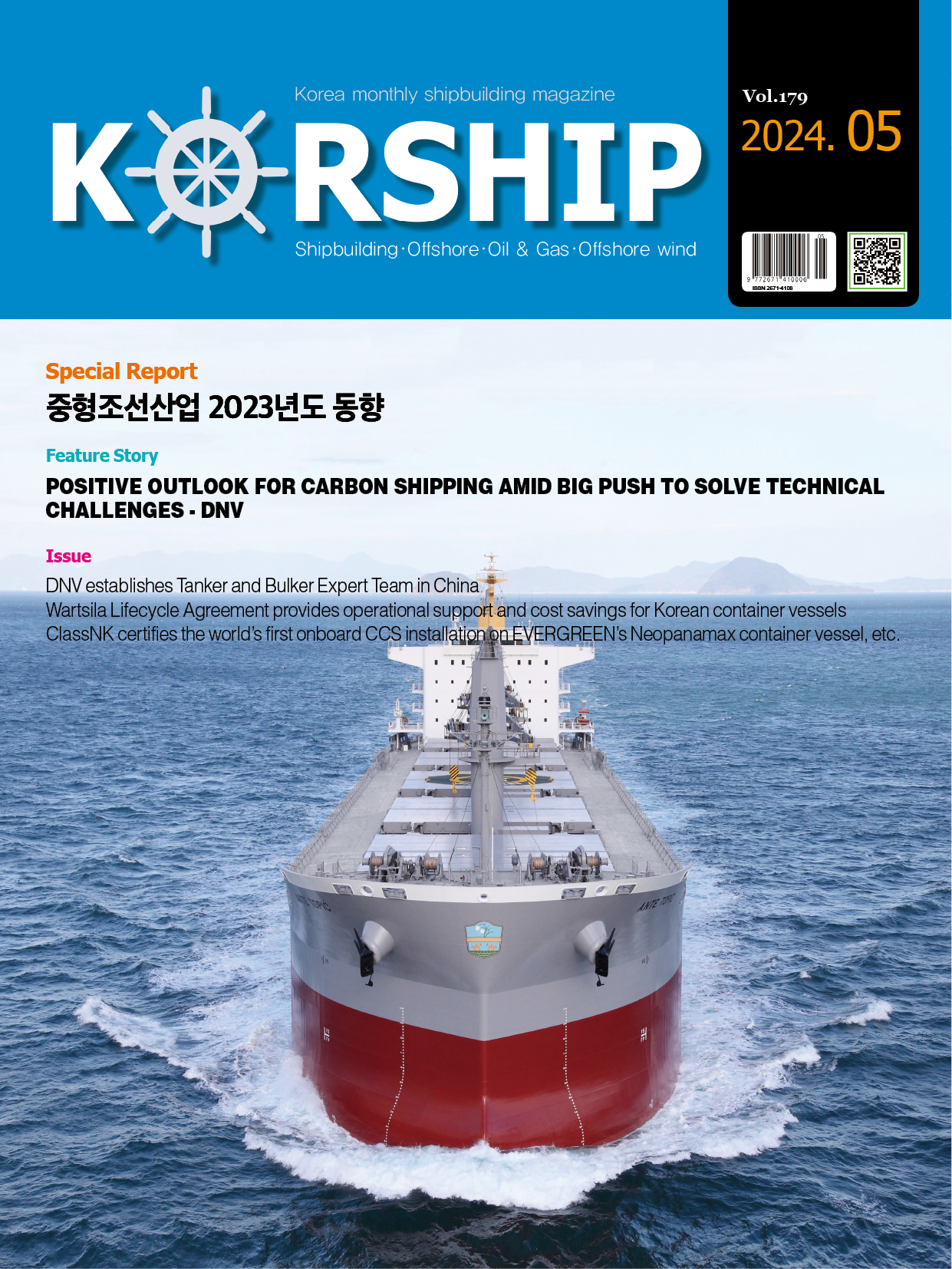ETC Scrubber removing more sulphur emissions than required by law
페이지 정보
작성자 최고관리자 댓글 0건 조회 2,412회 작성일 20-04-14 16:38본문
Scrubber reliability and their emissions reducing efficiency were addressed in February during a technical seminar in which members of the Clean Shipping Alliance(CSA) 2020 reported on the installation and performance of their respective exhaust gas cleaning systems.
A shipowner panel comprising Grimaldi Group, Genco Shipping and Trading, and Spliethoff informed delegates that, despite initial installation problems, there had been little by way of mechanical breakdown, corrosion or non-compliant operation. All panel members said that their EGCS installations were removing substantially more sulphur emissions than the 0.50% required to comply with the global sulphur cap.
With almost ten years’ experience operating ECGS, Arne Hubregtse, technical director and a member of the Spliethoff executive board, said: “We have not had any major problems; we don't see any corrosion issues or any breakdown issues. We are satisfied with our decision to install scrubbers and we look forward to operating these systems for a long time. From an environmental perspective, if you look at the total picture, scrubbers are still the best intermediate solution we have until a zero-emission propulsion solution is found.”
Italy’s Grimaldi Group, which operates about 100 EGCS-fitted vessels, reported similar success.
Addressing industry delegates at the CSA 2020 event in London, on 20 February, Dario Bocchetti, head of Grimaldi’s corporate energy saving and innovation department, explained the company has fitted the technology to about 70% of its fleet, with installations capable of reducing sulphur emissions down to 0.10%.
Bocchetti said the decision to install the system was to “go beyond the legislation”. Grimaldi Group’s scrubber installations are achieving about 90% up-time.
Genco Shipping and Trading, which has installed open-loop EGCS to 17 Capesize bulkers, the most recent of which entered service in January, offered similar sentiment. chief operating officer, Capt. Robert Hughes, explained: “We've had no breakdowns. But a lot of that is due to good planning, planning for performance. You must do the mental heavy lifting ahead of time, chose the right supplier, and identify where there could be some limitations and vulnerability. We haven't experienced any issues.”
While scrubbers have been operating successfully over many years in land-based power stations, the marinization of the technology has led to some concern over corrosion. However, the panellists said this can easily be avoided by applying “proper countermeasures”.
Although none of the panellists’ vessels have experienced scrubber-related corrosion issues, Hubregtse said: “You do need to do your homework. You know what's potentially going to go wrong so focus on that.”
Hughes also emphasised the importance of preventative maintenance and told delegates that Genco has elected to use an extra engineer onboard as a risk mitigation tool.
“We operate in a saltwater environment and things do rust out. If you're working on anything in the marine environment, it will break down, so you need to have a plan of action in place as you would with any system,” he said. Ultimately the goal here is investing in a well-trained crew united in their focus on cleaner emissions.”
With exhaust gas cleaning systems weighing between 10t and 100t and taking up additional space, ship stability and cargo capacity must be carefully assessed. However, the panellists advised that only in limited cases, say on some smaller vessels, alternative emissions reducing technology may be the better option.
Bocchetti suggested that there can be some cargo capacity loss, but any losses would be significantly more with an LNG retrofit. He said that retrofitting scrubbers has almost always been possible for about 90% of the company’s vessels.
Spliethoff, which has a variety of ro-ro, multipurpose vessels, and heavy lift vessels fitted out with EGCS has, in some cases sacrificed a fuel tank to create more space for installation. “Apart from a minor deadweight reduction we do not see any impact on cargo capability,” said Hubregtse.
In answer to a question from the floor on the future of marine exhaust gas cleaning systems, the panellists agreed that new alternative fuels and propulsion technologies will emerge, but scrubbers could also have a wider role to play.
“Where we will be in ten years is difficult to say,” said Spliethoff’s Arne Hubregtse. “We do need greener fuels, but there are many technologies and challenges to overcome: energy density, storage, operating temperatures and pressures. There is a lot of research going on by engine manufacturers to find a solution.”

Grimaldi’s Bocchetti remarked that any new technology developed will have to be applied on a large scale. He added that scrubber-operating vessels will continue to exist in ten years and the technology could even be developed to reduce other emissions, such as CO2.
Robert Hughes agreed. “As an industry we are getting better with air emissions, moving from 3.5% to 0.50%, and that's a step in the right direction, a solid step forward for improving air quality. Can we get better? Yes. I think that we should always challenge ourselves. I think we will begin to look at technologies that are already employed and look at ways of improving them. We just need to keep pushing ourselves as an industry to keep going and don't settle for it. I think that's the right answer.”
The panellists went on to explain how Port State Control authorities are policing the IMO2020 requirement, following its entry-into-force in January.
“They are keen to come on board and have a tour of the system,” said Hughes. “They are very keen to understand the different systems and technologies out there and see how they work. They are interested in seeing how it’s done in China, in Singapore, in Australia, the Americas. It’s all part of [the IMO2020] journey. That one vision. That one focus on improving global air quality. So, although some ports may have restrictions about using open loop scrubbers, it is important that we demonstrate what's going on, demonstrate how the technology works, and explain the science behind it. It is important to communicate that as a community.”
■Contact: www.cleanshippingalliance2020.org
- 이전글Smart Maritime Council announces support for shipboard machinery data standard 20.04.14
- 다음글현대, 차세대 함정용 전기추진체계 개발 20.04.14












